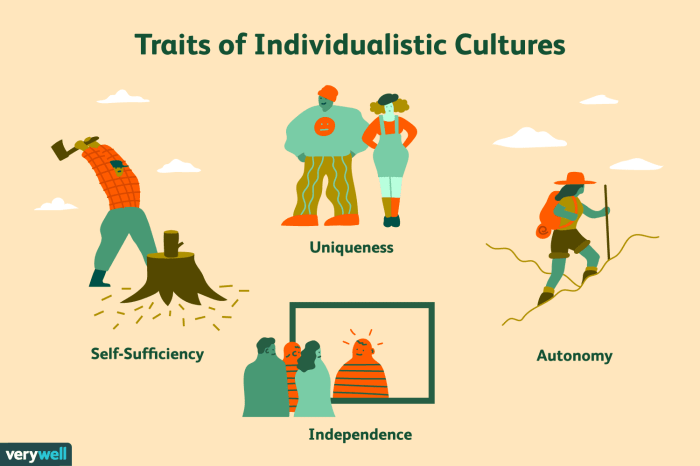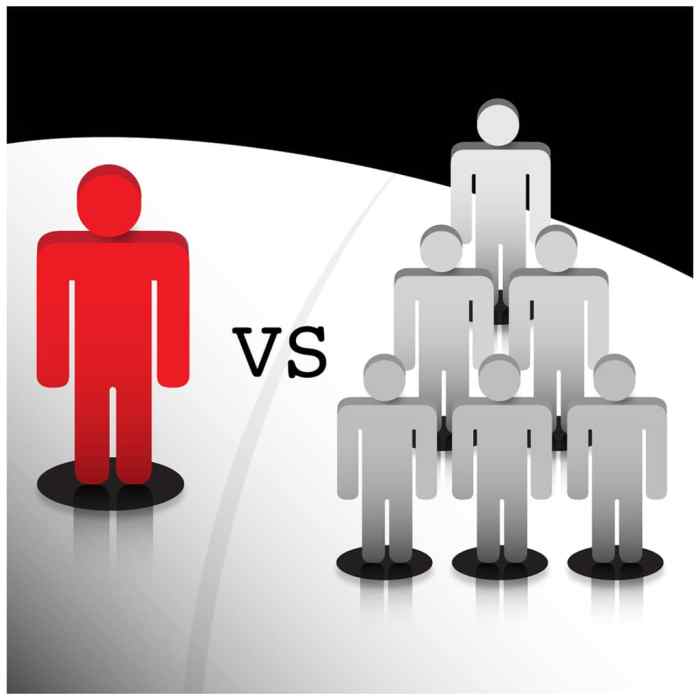Which culture generally considers deviant people and ideas dangerous? This question delves into the fascinating realm of cultural perspectives on deviance, exploring how different societies define, perceive, and respond to behaviors and ideas that deviate from social norms. By examining the factors that shape these cultural perspectives, we gain insights into the complex interplay between culture, social control, and the consequences of labeling individuals as deviant.
As we delve deeper into this topic, we will uncover the various methods employed by cultures to control deviant behavior, ranging from social norms and laws to institutions such as the criminal justice system. We will also explore the profound impact that social stigma and discrimination can have on the lives of those labeled as deviant, shedding light on the role of the media in shaping societal perceptions.
Cultural Perspectives on Deviance

Different cultures define and perceive deviance in varying ways, influenced by factors such as history, religion, and social values. For example, in some cultures, homosexuality is considered deviant, while in others, it is accepted or even celebrated.
Factors Influencing Cultural Perspectives
- Historical experiences
- Religious beliefs
- Social norms
- Political ideologies
- Economic conditions
Social Control of Deviant Behavior

Cultures employ various methods to control deviant behavior, including:
Social Norms, Which culture generally considers deviant people and ideas dangerous
- Unwritten rules and expectations that guide behavior
- Enforced through social pressure, disapproval, or ostracism
Laws
- Formal rules established by the government
- Enforced through sanctions such as fines, imprisonment, or social exclusion
Institutions
- Schools, churches, and families
- Socialize individuals into accepted norms and values
Consequences of Deviant Labeling
Individuals labeled as deviant often face negative consequences, including:
Social Stigma
- Prejudice and discrimination based on deviant label
- Loss of social status and opportunities
Discrimination
- Unfair treatment in employment, housing, and education
- Increased risk of victimization and violence
Role of the Media
- Media representations shape public perceptions of deviance
- Sensationalism and stereotypes can perpetuate stigma and discrimination
Challenges to Cultural Norms

Cultural norms related to deviance can be challenged or changed by factors such as:
Social Movements
- Organized efforts to change social norms and values
- Civil rights movement, LGBTQ+ rights movement
Technology
- Social media and the internet facilitate the spread of new ideas
- Challenges traditional norms and promotes tolerance
Globalization
- Increased contact between different cultures
- Exposure to diverse perspectives and values
Cultural Relativism and Deviance

Cultural relativism holds that cultural norms and values are relative to the specific culture in which they exist.
Ethical Challenges
- Cultural relativism may conflict with universal human rights principles
- Ex: Female genital mutilation
Situations of Conflict
- When cultural norms conflict with human rights, cultural relativism may not be an acceptable defense
- Ex: Honor killings
Cross-Cultural Comparisons of Deviant Behavior: Which Culture Generally Considers Deviant People And Ideas Dangerous
Rates and types of deviant behavior vary across cultures, influenced by cultural factors such as:
Cultural Values
- Cultures that emphasize conformity have lower rates of deviance
- Cultures that value individualism have higher rates of deviance
Social Control Mechanisms
- Cultures with strict social control mechanisms have lower rates of deviance
- Cultures with more relaxed social control mechanisms have higher rates of deviance
Implications for Social Policy
Cultural perspectives on deviance have implications for social policy, including:
Addressing Deviant Behavior
- Policies should respect cultural diversity while addressing harmful behavior
- Ex: Harm reduction strategies for drug use
Working with Deviant Individuals
- Policies should focus on rehabilitation and reintegration
- Ex: Mental health services for individuals with mental illness
Detailed FAQs
What are the key factors that influence cultural perspectives on deviance?
Cultural values, beliefs, norms, social structure, and historical experiences all play a significant role in shaping how different cultures define and perceive deviance.
How do cultures control deviant behavior?
Cultures employ a range of mechanisms to control deviant behavior, including social norms, laws, institutions such as the criminal justice system, and informal social sanctions.
What are the consequences of being labeled as deviant?
Individuals labeled as deviant often face negative consequences such as social stigma, discrimination, and limited opportunities in various aspects of life.
